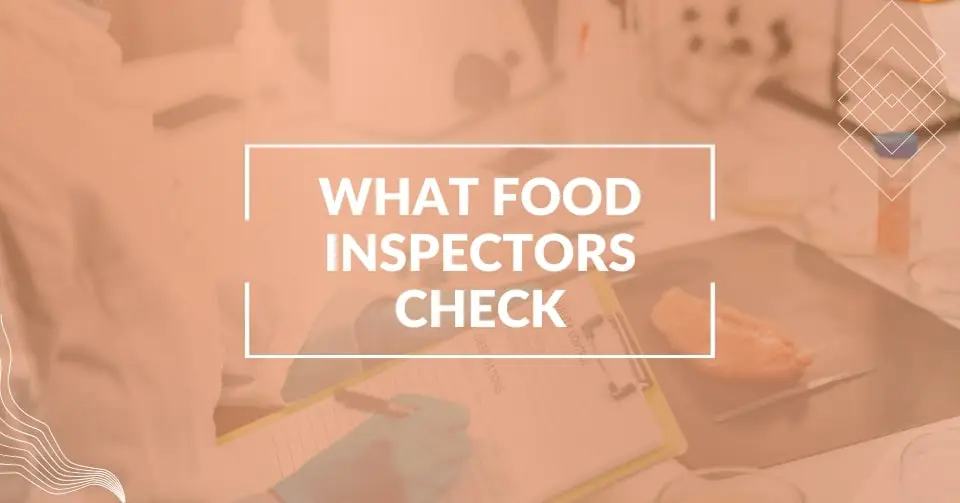What is an FDA Recall? Why do they happen?
Food recalls can be triggered for a variety of reasons, from mislabeling to contaminated products. In the United States, the U.S. Food and Drug Administration (FDA) is responsible for monitoring food safety and issuing food recalls when necessary. A recall occurs when a manufacturer or distributor takes back their product due to health risks associated with it.
We have an FDA Recall blog that has a list of FDA food recalls for 2025.
Why Are FDA Recalls Difficult?
As a QA manager or a food manufacturer, one of the worst things that could happen is being informed that there is a recall on one of your products by the FDA. Recalls are always expensive and difficult, not to mention the impact on your reputation that could take years to rebuild. It’s important to be proactive in order to minimize the potential risk of recalls in your food manufacturing and preparing processes. In this article, we will be discussing tips on how to prepare for an FDA food recall, and key ways to lessen the probability of an occurrence.
Try it out today!
Stay Up-To-Date With FDA Guidelines
Food manufacturers and QA managers should keep up-to-date with the latest FDA guidelines and regulations on food safety. Attend FDA conferences and events in your area to stay current on any issues or changes. Doing this will help equip you with the necessary information required to detect, prevent, and manage potential foodborne illnesses effectively.
Keep Quality Records
Food manufacturers and QA managers should maintain consistent records with accurate details of their products, including the product’s batch numbers, ingredients, and lot codes. Keeping these records is helpful in locating the source of contamination in case of a recall, as well as providing the ability to quickly identify and recall contaminated products. Most companies are now going with a digital food safety and record keeping system like FoodReady which also has a recall plan, HACCP builder, task manager, checklist builder, inventory management, verification dashboard and more. FoodReady also has an FDA consultant that can help you set up your food safety system.
Develop and Practice a Recall Plan
Every food manufacturer and QA manager should have a detailed plan in case of a product recall. The plan should be complete with a recall team, communication tools, policies and procedures to manage corrective actions, and a plan execution process. It’s important to review your recall plan periodically to ensure your team is prepared for the actual event.
Conduct Regular Audits and Inspections
Regular inspections of both the manufacturing facility and its processes can help identify and correct quality deficiencies before they become a recall. Conducting internal audits regularly and retaining documented findings helps to identify weaknesses and take necessary corrective or preventive measures to avoid future recalls.
Employ a Supplier Verification Program
Verifying your supply partner ensures you have a continuous supply of ingredients that meet your food’s safety and taste requirements. A responsible and quality supplier will also be aware of any ongoing recalls and have their own food safety program in place to keep their ingredients safe.
Staying vigilant and making necessary preparations to avoid a recall can save your food business from serious financial or reputational damage. Having an up-to-date knowledge of FDA guidelines, keeping quality records, developing and practicing a recall plan, conducting regular audits and inspections, and working with a trusted partner in the food supply chain are all great ways to help you avoid recalls or manage them in the most efficient way possible. By adhering to these strategies, food manufacturers and QA managers can be confident that they are serving safe products to their customers.
FAQs:
– Identify a potential safety issue with a product.
– Evaluate and assess the risk.
– Notify the FDA.
– Notify the public and remove the product.
– Report to the FDA and monitor the recall.
– Terminate the recall once all reasonable efforts have been made to remove the product from the market and the risk to public health has been addressed.
Failing to follow FDA recall procedures can have serious consequences that can include harm to the consumer, financial penalties, legal action, damaged reputation, and enforcement actions by the FDA.
Send a completed FDA MedWatch Voluntary Report form (3500) to the FDA, describing the product, the problem, and any adverse events or side effects that have been reported.
Establish a system to track the quantity of the product that has been returned or corrected, keep relevant recall data and report your data to the FDA regularly so they can monitor the progress of the recall.






